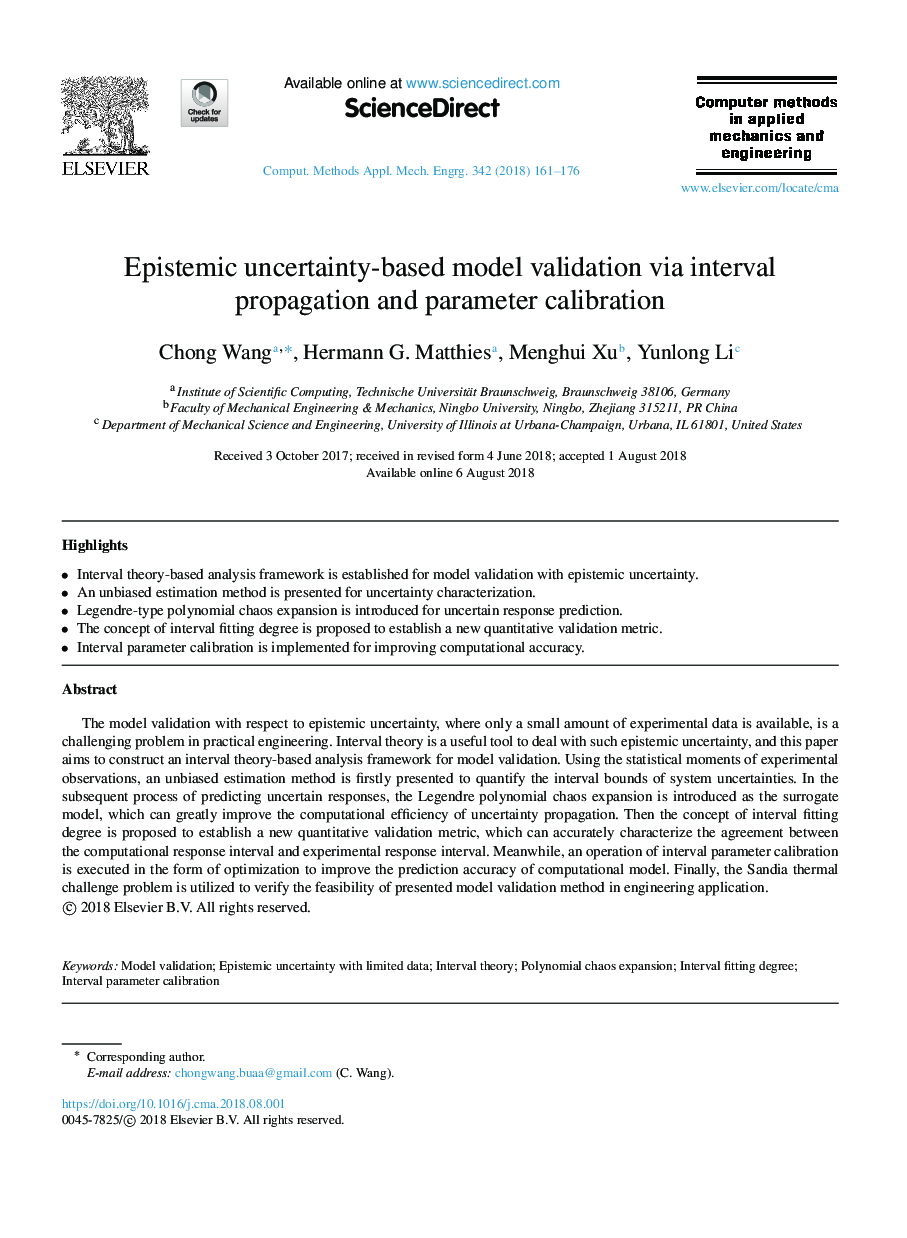| Article ID | Journal | Published Year | Pages | File Type |
|---|---|---|---|---|
| 9952325 | Computer Methods in Applied Mechanics and Engineering | 2018 | 16 Pages |
Abstract
The model validation with respect to epistemic uncertainty, where only a small amount of experimental data is available, is a challenging problem in practical engineering. Interval theory is a useful tool to deal with such epistemic uncertainty, and this paper aims to construct an interval theory-based analysis framework for model validation. Using the statistical moments of experimental observations, an unbiased estimation method is firstly presented to quantify the interval bounds of system uncertainties. In the subsequent process of predicting uncertain responses, the Legendre polynomial chaos expansion is introduced as the surrogate model, which can greatly improve the computational efficiency of uncertainty propagation. Then the concept of interval fitting degree is proposed to establish a new quantitative validation metric, which can accurately characterize the agreement between the computational response interval and experimental response interval. Meanwhile, an operation of interval parameter calibration is executed in the form of optimization to improve the prediction accuracy of computational model. Finally, the Sandia thermal challenge problem is utilized to verify the feasibility of presented model validation method in engineering application.
Related Topics
Physical Sciences and Engineering
Computer Science
Computer Science Applications
Authors
Chong Wang, Hermann G. Matthies, Menghui Xu, Yunlong Li,
